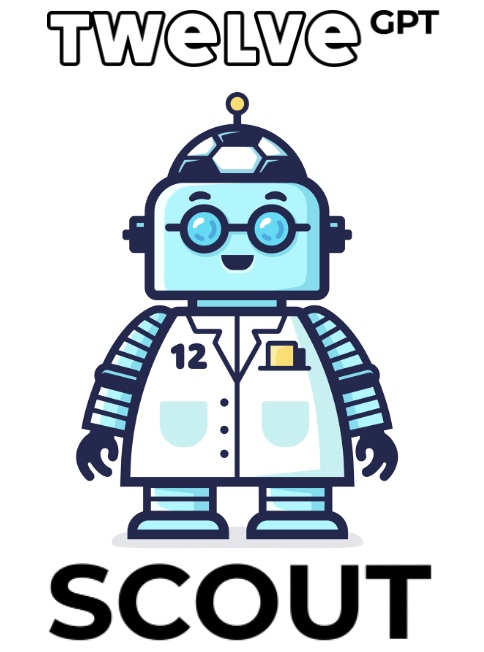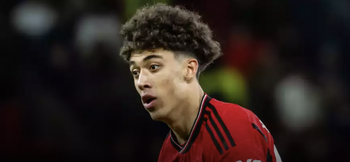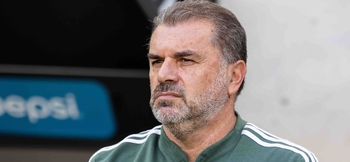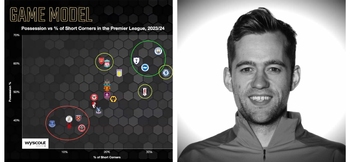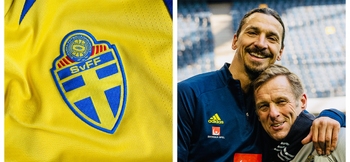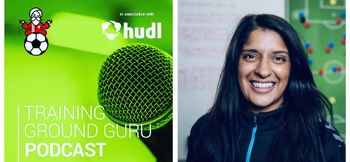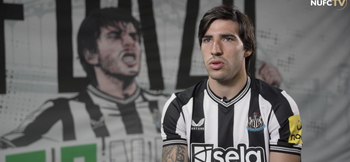Rene Maric: Why game insight is the key attribute for a Bayern player

Master and apprentice: Thomas Muller and Aleksandar Pavlovic
Written by Simon Austin — March 11, 2024
RENE MARIC says the most important attribute for a Bayern Munich player is ‘game insight’, as demonstrated by the legendary Thomas Muller and young pretender Aleksandar Pavlovic.
Austrian Maric was appointed Lead of Coaching Development and Playing Philosophy at Bayern in November, having previously been Assistant Head Coach at Red Bull Salzburg, Borussia Monchengladbach, Borussia Dortmund and Leeds United.
Appearing on the TGG Podcast, which you can listen to below, the 31-year-old said: “We need different positions, different attributes; players who can dribble, players who can go deep, players who can defend. But, in the end, it doesn't matter if you are not able to accurately perceive and decide.
“Historically, these are the ones who are able to make that gap. They're maybe not always the most spectacular in the Under-16s and 18s, because they don't have that big spectacular strength, but we want to focus on these players.
“If the player understands the game, he will always get another chance. These are players that we do not want to lose. These are the players that very often, they just go to the next level and they're still able to adapt.
“That gap is so big, but football stays the same on every level, it's just adapting.”
Muller and Pavlovic are at opposite ends of the spectrum in terms of their careers. Muller, 34, is a one-club legend who has won 12 Bundesliga titles and two Champions League titles with Bayern; Pavlovic is just 19 and only made his first-team debut for the Bavarian giants in October.
However, they are both products of the Bayern Academy (Muller joined at the age of 10 and Pavlovic at six) and, according to Maric, are unified by their game intelligence.
“You have Muller and you have Pavlovic now - their biggest strength is that they understand the game,” he said. “They have intelligence, game insight.
“Muller has that nickname, Raumdeuter, space investigator in English, and he is just so smart in terms of finding the gaps, finding the right space. In the meetings, I showed goals where you can hear him.
“Because it was the Covid lockdown, you can hear every audio and hear him coaching and they open the space because he's coaching. He opens the space, and then the through ball opens, and we score. I said, ‘Look, does he have something in the statistics?’ No, but he created the goal.
“He basically has an assist. He told the team-mate to run deep, and he told the player who passed the ball carrier, he told him that there is something open, and he opened the space. So he was involved in the goal and in the pass, and he made it possible. And that's why he played on that level for so long and won so many titles.
“And again, with Pavlovic, we have a fantastic guy who I really believe that he's just top, top-level talent. And it's very good that we have him with us in the first team. Pavlovic is obviously not playing in around the last line, but playing in front of our first line because he's a holding six.
"He can play double six. He can also join the attack and score goals, just because he recognises space, he recognises what the situation right now asks, and he can answer that question. And this is something that we're really keen on developing.
”In the end, it's about perceiving a situation in the pitch, knowing the tasks of each player in that situation and finding a solution together as a team so you can either score or at least keep the ball and then find the next situation to score.
“I think that's the basic thing and players like Pavlovic and Muller are perfect examples of just reading the game and finding the right task.”
SKILLS LAB
Bayern work to develop the cognitive skills of the players in their Academy. This even happens away from the training pitches, with the club having opened a 'Skills Lab' in December 2020.
Academy teams from the U12s upwards, as well as the Women's team, train daily in the hexagonal mini stadium. Up to four players at a time are able to take to the 320m2 artificial turf pitch, solving game situations and tasks that are projected onto screens by five high-performance projectors. Four fully-automated ball machines form the heart of the facility, which offers more than 100 training scenarios in five difficulty levels.
Players can be monitored under standardised conditions; trial players can be screened and compared with other young players; and there is individual training. Bayern say the 'unique selling point' of the Skills Lab is that players can be tested in laboratory conditions with identical requirements.
Once the data is collected, analysts from the Innovation Centre are able to pore over it.
“If you know the Footbonaut, the Skills Lab is in some way the next step, where there's a visualisation of things, where there's a coach on the pitch, where there are different ways of creating a picture that is very realistic to the game additionally to the team training," Maric explained.
“We do it only if that execution part might be lacking. So they still have the picture in their head of what their perception of the game should be, what their decision of the game should be, and then we focus on execution.
“Then we add some things where we try to make overload them cognitively. And we have an Innovation Analysis Department that I work together with, who are really, really, really good.
“And we're just all everything in-house validation so we do the testing, we do the screening, we test it, we look how players change in what regards.”
Event data from matches does not necessarily reveal the game insight and decision-making ability of players, although this is something data scientists are trying to unlock using tracking data. Jonny Whitmore of Stats Perform delivered an excellent presentation on this topic for TGG's Big Data Webinar at the end of 2022.
However, a player's leadership and coaching influence and ability, as exhibited by Muller and often provided off the ball, remains very difficult to quantify.
WORKING WITH SZOBOZLAI, HAALAND AND BELLINGHAM
Although he is only 31, Maric has already worked with some of the best players in European football. One was Dominik Szobozlai, with whom he worked for Red Bull Salzburg’s U18s and first team.
Maric said he wasn't surprised that the midfielder had been able to make such an immediate impact in his first season at Liverpool.
“I’m not surprised, because we always knew that he is a tremendous talent, and it's just up to him how consistently he's able to apply it,” he said.
“When I saw him develop from when he was 16-years-old to the later stages when he was joining us at the first team at Salzburg, I think you could see that there's unbelievable potential.
“Just in terms of shooting, he's maybe the best in the world, or at least up there. If he's able to get into these positions and then also fulfil his other tasks… he has that ability, that capacity. He’s a tremendous player.”
When he moved to Borussia Dortmund in 2019, Maric worked with Erling Haaland and Jude Bellingham.
“I’ve said it before - I've never seen someone who is as quick a learner as Erling," Maric explained. "The way he adapts these things from training to the game, the transfer and even the understanding, is just very underrated and a hidden quality from him.
“He’s always described as this very physical striker, but he's a very smart guy. He was not an early bloomer, from what I gathered, but had that eagerness to improve. Obviously, I met his father, I know him, and I think that in terms of the family, the whole environment, his character, that was just very helpful to make him who he is today. He's the same guy as he was when I met him years ago.
“When Erling was at Salzburg, you do a lot of individual training, because he came with a not-as-simple injury to us, which didn't permit him to go 100% in the first weeks and months.

You can watch Jonny Whitmore's presentation on quantifying decision-making at the 2022 Big Data Webinar.
There are eight presentations:
- Rodrigo Picchioni: Fully automating and integrating data at Atletico Mineiro.
- Mladen Sormaz: Data analytics in the multi-club model.
- Tyler Heaps: Data-driven decision-making at AS Monaco.
- Emily Angwin: Making an impact with data across the women's pathway.
- Fabio Nevado: How La Liga clubs synchronise tracking & event data with video.
- Akhil Shah: Data engineering - How to get from good to great.
- Jonny Whitmore: Quantifying player decision-making with predictive data.
- Lucy Rowland: Difference between club & international analytics.
To find out more and to buy the webinar, click the button below.
“So I had the pleasure that basically I was taking over in these days where he had to do it without the team. That was really enjoyable. It's about just talking with them through the games, through the trainings, and then keeping them on the right track.
“I always believe that if the player has a wish and a conviction that he wants to improve on something, it's always very good to hear and to listen to the players and to hear his thoughts and then try to help him in what he wants to be better at.
“With Erling, we did a lot of movement in the gaps of a back four in different situations of the game depending on where the ball position is. If you look at his games, maybe the easiest example is if the ball is in the right half-space of a player like De Bruyne, what's the best position and angle to then maybe be able to receive a ball? What happens if the ball moves, and then you have to relocate? What happens if the ball breaks through? What is the type of run? What are the reference points for your perception?
Maric said Bellingham shared Haaland's desire to learn and improve.
“I think everyone in Europe with more than one scout in the club knew who Jude Bellingham is," he said. "That eagerness to improve, to win, to work on yourself without changing yourself – that mixture is something that really connects them.”
And Maric was clear about how Dortmund manage to attract young players of the calibre of the duo.
“If you have that mixture of being a big club and still being able to give consistent minutes and promise him that he'll be able to play, I think that just convinces these top talents to go there," he told TGG.
“If you give the minutes, very often if there is enough support from the staff, these players will progress through these games because they're high-level games in a high-level environment. And I think that's the main part of it.”






